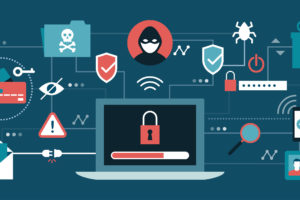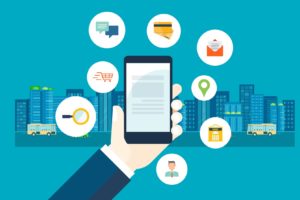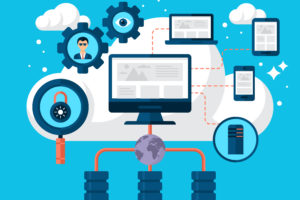Apple recently unveiled its new iPhone lineup, including the iPhone 17 (with Pro variants) and a fresh model called iPhone Air. This is more than just consumer news for small and medium businesses that support mobile devices; it’s a signal that your environment could see change soon.
Before you make any upgrade decisions, let’s walk through:
- What’s new (and why it matters)
- The risks and opportunities of mixing new devices with existing ones
- A decision framework for whether you should upgrade now – or wait
What’s New At a Glance
Here’s a simplified breakdown of the headline changes:
- More performance, better display, stronger build – The iPhone 17 includes the A19 chip, smoother displays (ProMotion), and improved durability (Ceramic Shield 2).
- Camera and front-facing upgrades – A new “Center Stage” front camera mechanism boosts video calls and selfies.
- More base storage – The entry-level model now starts at 256 GB, doubling the storage capacity offered by some recent iPhones.
- Modern connectivity – Support for newer Wi-Fi and improvements to wireless performance help futureproof network demands.
- Software ecosystem & longevity – The new models will ship with iOS 26 and are built for multi-year updates and features.
In short: these are meaningful upgrades, not just incremental refreshes.
Why It Matters to Your Business
When your staff start adopting iPhone 17 or iPhone Air, the change ripples through your tech environment. Some things to be aware of:
Performance & Productivity Gains
- Faster chips mean smoother multitasking, quicker app response, and longer usability over time
- Better display responsiveness and connectivity help apps feel more seamless
Compatibility & App Risk
- Internal or custom business apps may not run properly at first on new OS versions.
- Edge cases – like camera permissions, sensors, or new APIs – may break parts of workflows.
- Regulatory or security policies you’ve enforced may need updates for new features (e.g., new camera settings, new network stacks)
Security & Baseline Impacts
- New devices may ship with new default settings that don’t align with your lockdown baseline.
- You’ll want to test whether your Mobile Device Management (MDM) or security policies work seamlessly on the new hardware and software.
- Delays in deploying upgrades may expose you if a new device has a zero-day or undisclosed vulnerability.
Thus, it’s not just “buy the new iPhone” – it’s ensuring your IT stack and governance keep up.
Upgrade Now When It Makes Sense
If your business is ready and the benefits outweigh the risks, here’s when upgrading early is valid:
- You want a future-ready fleet – Starting with fresh devices gives you a longer runway before aging hardware becomes an issue.
- You have solid IT & MDM capabilities – If your team is comfortable testing, rolling out updates, and troubleshooting compatibility issues.
- You’re replacing older or failing devices – Use this as an opportunity to standardize.
- You want to take advantage of trade-in or promotional offers – Apple often offers credit for older devices soon after launch.
If these conditions line up, procuring a small batch for key users or early adopters may make sense.
Wait When You Should Hold Off (For Now)
Here are scenarios where waiting is prudent:
- You run a lot of custom or legacy mobile apps – Until you’ve vetted compatibility across the board.
- Your IT capacity is lean – You don’t have the bandwidth to manage unexpected rollouts or device issues.
- You recently purchased many phones – Let those cycles run before introducing new ones.
- You prefer stability over bleeding-edge risk – The first months of a new device release often bring surprise patches or firmware updates.
In these cases, delaying until the new iPhones mature (say, after the first software update cycle) gives you time to iron out kinks.
Suggested Approach: A Phased, Controlled Upgrade
Here’s a middle path many SMBs find effective. Think of this as a low-risk pilot:
- Pilot group first
- Roll out the new iPhones to a small group – maybe your mobile-heavy users (sales, field, management) or internal IT testers.
- Compatibility & security testing
- Test all business-critical apps, configurations, MDM profiles, and workflows under real conditions.
- Adjust your policies if anything breaks.
- Staging and certification
- Once your pilot is stable, certify the configuration as “approved for general deployment.”
- Gradual rollout
- Deploying in phases – department by department – so any unexpected issues can be contained.
- Support & feedback loop
- Actively monitor, collect feedback from users, and respond quickly to unexpected glitches (app crashes, connectivity, permission errors).
Final Thoughts: Upgrade Now or Wait?
There’s no one-size-fits-all answer – but here’s a quick digest:
- If your IT team is capable, your app ecosystem is modern, and you’re okay absorbing short-term testing overhead, an early upgrade is defensible.
- If you prioritize reliability and can’t risk disruption, waiting (for stability, compatibility validation, or the first patch cycle) is fully reasonable.
Our role as your technology partner is to help you assess that balance, guide a phased deployment, and ensure that your operations stay smooth even as devices evolve.
Would you like me to help you map out a rollout plan for your organization or run a compatibility checklist for your existing apps against the new iPhones?
Partner With Vodigy Networks
At Vodigy Networks, we specialize in helping SMBs plan, test, and roll out new technology without disruption. Whether you’re considering a full iPhone upgrade or just preparing for a gradual rollout, our team can guide you through:
- Compatibility testing for your apps and workflows
- MDM & security policy alignment with the latest devices
- Phased deployment strategies to minimize downtime
- Ongoing support to keep your staff productive and protected
Ready to simplify your mobile device management? Contact Vodigy Networks today to ensure your next upgrade is smooth, secure, and cost-effective.

Todd Eldron
Todd Eldron is an accomplished information technology professional with over 15 years of experience guiding organizations through digital transformation initiatives. His work focuses on implementing effective strategies to enhance cybersecurity, optimize operational performance, and adopt emerging technologies responsibly.




